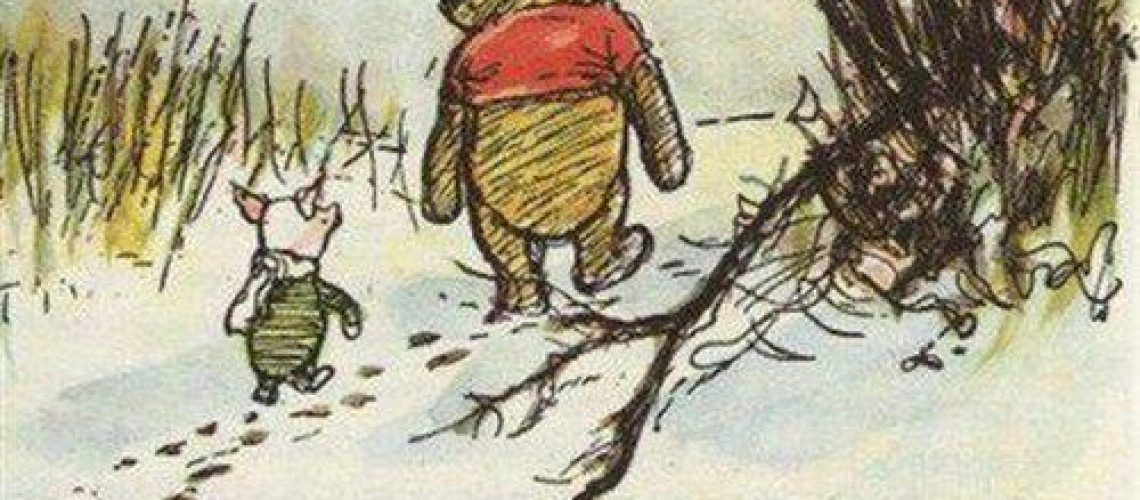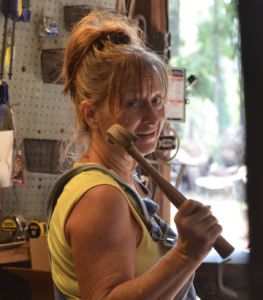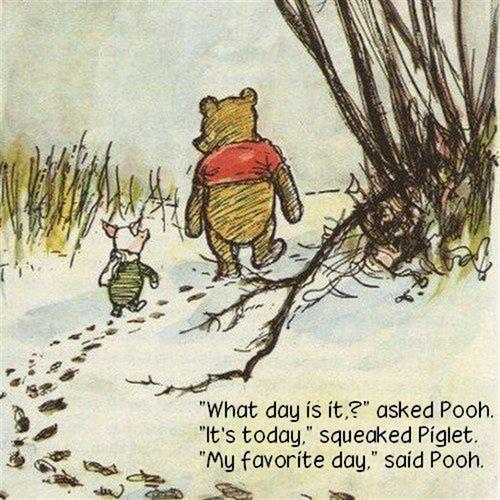“How come you aren’t writing your Happy Monday’s anymore?” Neil says. We were at the end of our phone conversation. The question came a little bit out of the blue but I do have a brother who tries to keep up with my emotional health.
“Well…” and I launched into a complicated explanation involving life was busy and I felt like I wrote to explain honest things in my life and with Mother being ill and older, I didn’t want to spew that kind of honesty and travail out across the internet continuously.
I actually don’t remember how much of this I got out in any coherent fashion. I probably did get out that “I was too emotional” to write.
“I think you have.. well, PTSD,” Neil said. His words were wrapped in care and interest and I liked them. Eh, not so much his diagnosis. “I didn’t realize it when Dad died, but looking back, I had symptoms that pointed to some kind of PTSD,” he finished.
Neil had tended and watched our Dad suffer two years long and then pass on, standing as a young eighteen year old beside our Mother. I was largely absent, living in Texas with my small Jake and Silent Bob.
“I mean its not really PTSD like soldiers get…” he continued.
I listened but my mind wandered. When I was 13, I had read a biography of a young nurse in WWII. Unfortunately the book listed the symptoms of shell shock. Being emotionally hypersensitive and a raging hypochondriac, it didn’t take my Dad long to ask, “Jan, what in the hell is the matter with you?” He definitely didn’t expect me to say I thought I was shell shocked.
“You haven’t been in war,” he said. Taking the Lord’s name in vein under his breath, he quickly considered just how problematic this kind of thinking in a young woman might indicate for her future. After a few more parental consultations, I swore off biographies that had any description of illness. And a few other considerations he strongly suggested.
“I don’t think you have stopped writing because you are too emotional. I think you quit writing because you are emotionally wrung out.” Neil’s says.
What? When Jake died, I was wrung out and torn. I couldn’t have been more wrung. Writing was a balm. It was necessary to explain the crystal clarity of the reality of my ragged heart. It was a requirement to cement into my own soul and anyone that would listen to my words, that although Jake was gone from here, who he was and the love in my heart that was his wasn’t over. Never over. Never any less real than the love I had for his brothers although I would never again lay my hand upon his arm, the way I could his brothers, knowing muscle and sinew and skin, bone of my bones. I certainly couldn’t imagine being more wrung out emotionally now.
However, it does pay to contemplate what the people who love you say to you.
Thinking brought a conclusion. Jake grief was different than the kind this Mother grief-in-waiting was.
It’s not like I hadn’t wanted to write before Neil asked me why I’d stopped. It wasn’t because there weren’t things I still wanted to say. There were. Countless time I formulated paragraphs in my head. It’s wasn’t that I had stopped trying to make sense of life. A hundred instances a week made me wonder about the world or my place in it. It wasn’t that my heart had lost the desire to paint it’s voice with words on paper. I longed to.
But I didn’t and I hadn’t. Because I am too tired to do it.
Neil was right.
While not the same thing as the trauma of a soldier’s life in war, ducking at sounds and never deep sleeping, knowing that life ending events are the possible part of every minute of every day, this is a different kind of constant trauma.
It’s the kind where the one you love is suffering and so very often is only going to end in passing out of this life. And you need to live it with them. For however long it takes. And no matter how much you’d like to believe that maybe tomorrow will be like things used to be, your hope won’t change the fact that in some cases it will never be true. And you live it with them. The reality is that this is long term waiting for the next thing, knowing oftentimes it’s an add to the reality and finality of the end. And you share the journey with them.
It was the second night post my brother’s question, my computer screen blaring against the need to sleep, that I found the term “compassion fatigue”.
Here’s what I think. It’s good to have brothers. It’s good to be able to step back and see why you can’t do something that is still in your heart. And although I now have a description that credits certain temporary inabilities, I also know that there is a timeless universality to this human condition that the term attests to.
So why did I write this today?
I’m out of practice. I can’t seem to get the locked words and images out, but one thing I can do.
I can tell you that I know some of you who stand or have stood in places similar and although I can’t do a thing about that truth in your life or the condition of your heart as you traverse hard moments, months or years, I do these two things: I pray for you. And I thank you. For the love that in spite of fatigue and despair, inspires you to care and do. As bad as it is, it is one of the beautiful things, the exceptional and lovely things of which we humans are capable.
And quite wonderfully, it is most perfectly exhibited in the one who created us.
Praise the Lord.
And Happy Monday.
Authors Note: No matter your state of belief, I would hold you in mine. Should you need that, tell me.
SaveSave
SaveSave
SaveSave




3 Responses
Then you for this beautiful piece. I love you.
Rita
Thank you
I was just wondering the same thing!
Good to hear from you Janet, and my prayers for you too.